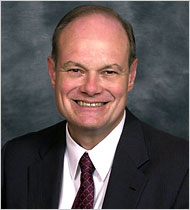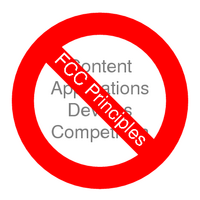
The dateline is ironic:
LAS VEGAS (AP) — The Federal Communications Commission will investigate
complaints that
Comcast Corp.
actively interferes with Internet traffic
as its subscribers try to share files online, FCC Chairman Kevin Martin
said Tuesday.
A coalition of consumer groups and legal scholars asked the agency in
November to stop Comcast from discriminating against certain types of
data. Two groups also asked the FCC to fine the nation’s No. 2 Internet
provider $195,000 for every affected subscriber.
“Sure, we’re going to investigate and make sure that no consumer is going
to be blocked,” Martin told an audience at the International Consumer
Electronics Show.
—FCC to Probe Comcast Data Discrimination,
By PETER SVENSSON,
AP,
8 Jan 2008
In other news, Las Vegas Board of Realtors announces investigation of gambling!
Sorry; I made that up.
Note that Martin is not only chair of the FCC that continues to enable
telecom and media consolidation, he also continues to refer to ISP customers
and participants as “consumers”, as in the old broadcast model where
the broadcasters produce and you the customer are expected to consume
whatever they give you.
The organization doing the most investigating
of stifling, blocking, etc. by Comcast, Cox,
et al., has been the Associated Press, which also originated this story.
Interestingly, the AP is not owned by any of the usual five companies
that own most of the media in the U.S.
The AP
is a non-profit cooperative owned by its contributing newspapers.
So one of the few national news organizations in the U.S. that
has not been consolidated is the one that has been investigating
stifling by ISPs.
-jsq
PS:
“I’m shocked, shocked to find that gambling is going on in here!”
—Captain Renault, Casablanca, 1942
 Prof. Jean Camp points out that:
Prof. Jean Camp points out that:








